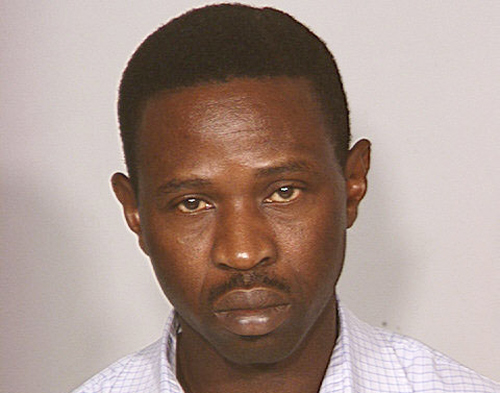If it is not double jeopardy, it is a distinction without a difference
The tale in Sunday’s paper by court reporter Francis McCabe about the plight of Victor Fakoya — acquitted of murder of a friend’s child but still not allowed to see his own children unless he confesses to the act that a jury said the prosecution could not prove — is one of jurisprudence, human tragedy and moral conscience.
In December a jury found Fakoya not guilty of murder in the death of a 2-year-old boy who was living with his family. But on being released from jail, he was told he would lose parental rights to his two daughters unless he admits that he abused and killed the boy.
Since he refused to confess, he faces a trial in Family Court later this month.
The story points out the Fifth Amendment prohibits double jeopardy, but then explains the charge in Family Court is different because the court’s goal is to protect children rather than prove guilt. Frankly, the distinction is one without a difference. Both courts are in the 8th Judicial District. But Family Court too often strays from administering justice into social work and second-guessing of family decisions and behavior.
But double jeopardy may have largely been relegated to the trash bin of history by the courts anyway. As Seth Lipsky points out in “The Citizen’s Constitution,” the U.S. Supreme Court in 1922 in a Prohibition case decided the same charges could be brought by both state and federal courts.
In U.S. v. Lanza, Chief Justice William Howard Taft -- yes, the former president -- wrote:
“We have here two sovereignties, deriving power from different sources, capable of dealing with the same subject matter within the same territory. Each may, without interference by the other, enact laws to secure prohibition, with the limitation that no legislation can give validity to acts prohibited by the amendment. Each government in determining what shall be an offense against its peace and dignity is exercising its own sovereignty, not that of the other.
“It follows that an act denounced as a crime by both national and state sovereignties is an offense against the peace and dignity of both and may be punished by each. The Fifth Amendment, like all the other guaranties in the first eight amendments, applies only to proceedings by the federal government (Barron v. City of Baltimore, 7 Pet. 243), and the double jeopardy therein forbidden is a second prosecution under authority of the federal government after a first trial for the same offense under the same authority. Here the same act was an offense against the state of Washington, because a violation of its law, and also an offense against the United States under the National Prohibition Act. The defendants thus committed two different offenses by the same act, and a conviction by a court of Washington of the offense against that state is not a conviction of the different offense against the United States, and so is not double jeopardy.”
That’s why the cops acquitted in the Rodney King beating could be brought up on federal civil rights charges.
Whether the argument holds up for separate cases in the same court is one that should be addressed.
Whatever the legal niceties, it seems morally incongruous for prosecutors to demand of Fakoya that, in order to settle his Family Court case, he confess to something for which he was acquitted. It smacks of vindictiveness, as Fakoya’s attorney claimed.














